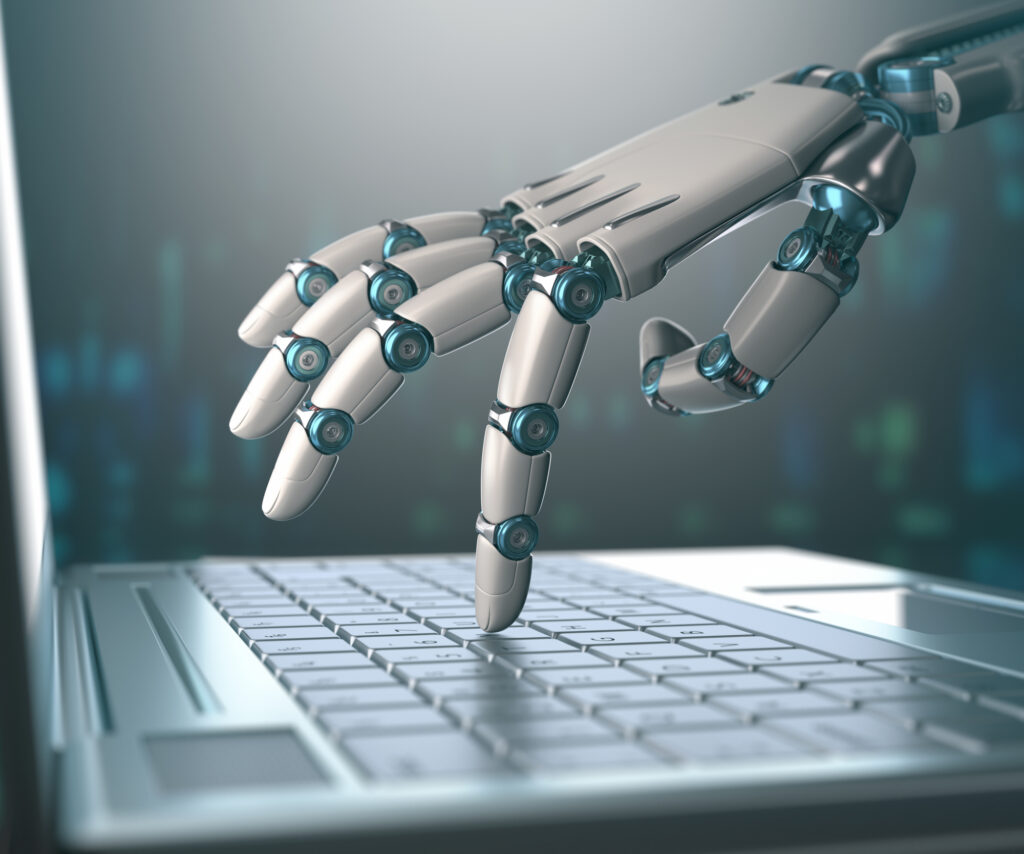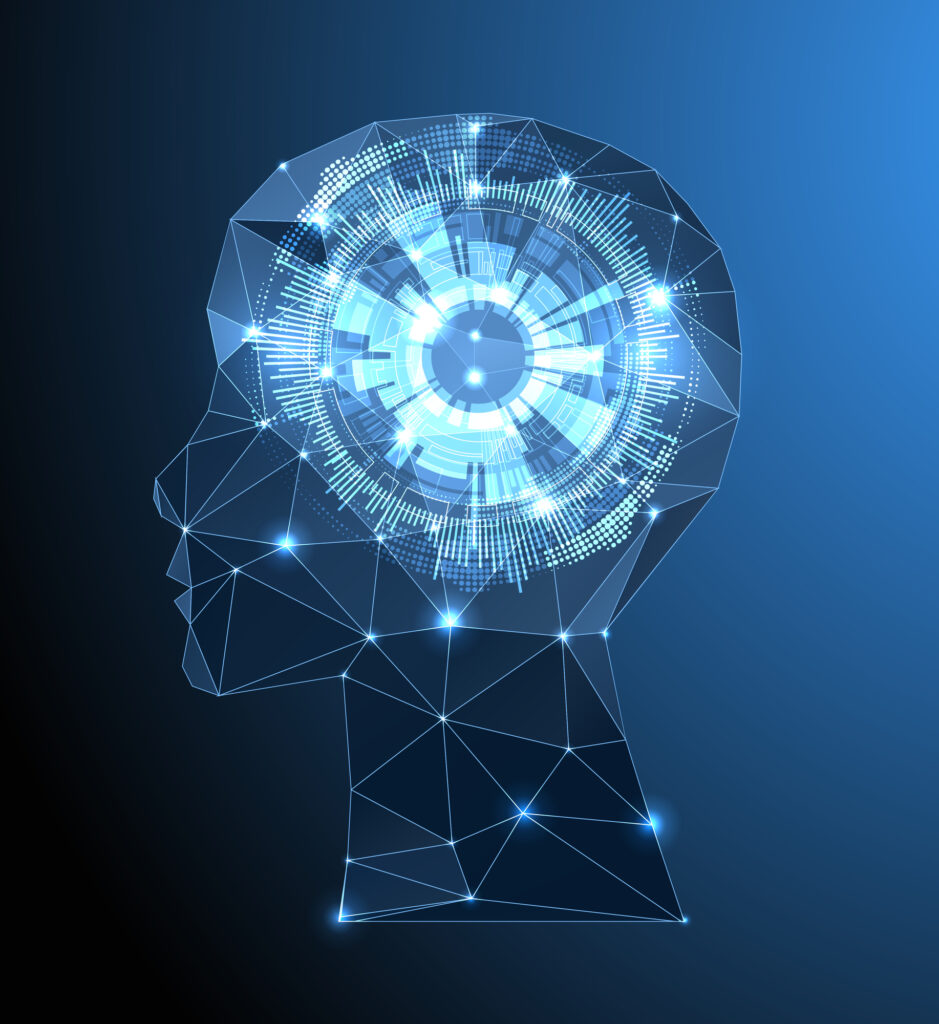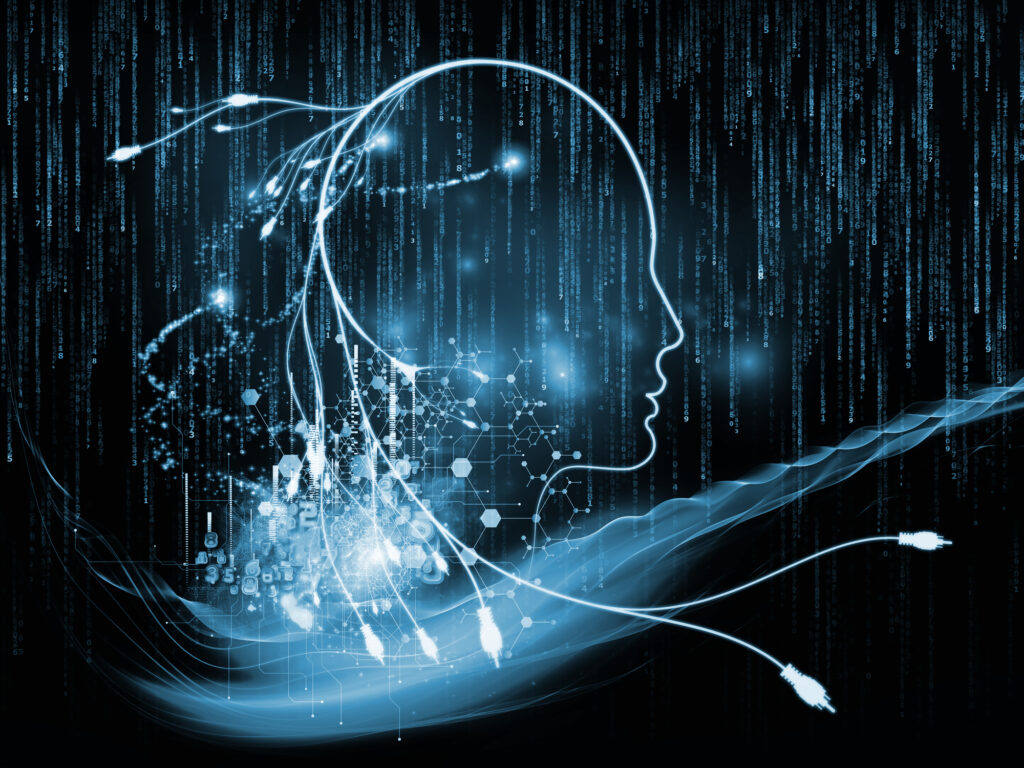Artificial Intelligence in Marketing
Gartner has estimated that AI’s business value is $3.9 trillion.
McKinsey’s report on the state of AI shows that half of all companies interviewed have adopted AI in at least one area. Most of these companies use artificial intelligence for product development and customer service.
Over two-thirds of respondents who have implemented each of these use cases reported that they increased revenue. The majority of respondents reported revenue gains in pricing, promotions, inventory optimization, and customer service analytics as well as sales and demand prediction.
Artificial intelligence (AI) can be used to improve online sales, increase conversion rates, and provide a better customer experience. Evergage research shows that 63% of respondents reported increased conversion rates, while 61% said they had improved customer experience.
Artificial Intelligence Definition
Artificial intelligence (AI) is the imitation of human intelligence by machines. They are designed and programmed to think and act like humans, focusing on problem-solving, speech recognition, planning, and learning.
Artificial intelligence involves machines that rationalize, complete and execute tasks the same way as humans. Artificial intelligence is the use of machines to rationalize, execute and complete tasks in the same manner as a human.

History of Artificial Intelligence
Mathematicians and philosophers are all involved in the exploration of possibilities that led to artificial intelligence.
Alan Turing was one of those. Alan Turing is one of them.
By the end of the 1960s, the US Department of Defense began to show an interest and invest in the topic.
Artificial intelligence (AI) has reached unimaginable heights 60 years after it was first developed. This can be confirmed by looking at the world around us. While it may not have the power to conquer the whole planet as it does in Hollywood movies, it still is impressive.
What is Artificial Intelligence?
AI processes huge amounts of data at record speed algorithms and iterative computing that allow the software to learn patterns from data. These are just a few:
- Machine Learning: The study of Machine Learning looks at how computers can mimic human learning behaviors to learn new skills and knowledge and to reorganize their knowledge structures to continuously improve. It is also the foundation of Artificial Intelligence. In all fields of Artificial Intelligence machine learning is employed.
- Deep Learning: A deep learning algorithm requires large amounts of data to be effective. This technique is more advanced than machine learning and creates decision-makers that are artificial neural networks.
- Natural Language Processing (NLP): the science of breaking down and learning from languages. The system responds by interpreting the question.
- Computer Vision refers to the capability of a computer to recognize an image. This technology is applied in many fields such as public safety and security monitoring.
- The robots are capable of self-determination when combined with Computer Vision, Artificial Intelligence (AI), and the capability to anticipate future events.
- Speech Recognition: used to convert speech into text, then recognize, identify, and process the words. This technology can be used for a variety of purposes, including controlling PCs and providing customer service.
- Cognitive Computing Simulates the human brain through images, text, speech, or objects. It attempts to simulate similar output.
- The neural network is a simulation of human neurons to help process data the same as humans.
Artificial Intelligence Types
There are three types of artificial intelligence:
- It is sometimes called Weak AI. Narrow AI is limited to one narrow task. Siri, Google Translate, and image recognition tools are all examples.
- A strong AI can do the same things as humans. Examples of general AI are self-driving cars.
- The AI which can make rational decisions, create art or surpass human ability is called super AI. Although the human race is yet to achieve artificial superintelligence, it may be able to develop emotions on its own. When it happens, however, this will mark a significant breakthrough in the history of mankind.
Artificial intelligence: Benefits
Artificial Intelligence has many advantages.
AI is more accurate, and it reduces errors because computers do not make mistakes unless they are programmed. This technology improves decision-making by removing emotional factors and basing its decisions on data and patterns.
AI can work 24 hours a day, 7 days a week, without affecting efficiency and success rates. The machine does not require rest and can do multiple tasks simultaneously. Can perform tedious tasks humans hate.
AI can be used to perform hazardous tasks which may cause harm to humans. For example, they can travel into space or defuse bombs.

What is artificial intelligence and how can it be used for marketing?
1. Conversion-driven programmatic advertising
In programmatic advertising, AI can be used to automate these actions:
- Used to narrow and analyze the audience to provide a more personalized ad serving.
- You can use predictive analytics to measure the effectiveness of various elements. Included in this are creative direction, fonts, and copywriting.
- To develop insight about audience and bid strategies, collect and process data.
- Process information on the page and determine where advertising should be placed.
According to eMarketer, by 2021, ads valued at $81 Billion (88 % of US digital display advertisements) will be traded via programmatic methods.
To improve their advertising effectiveness, luxury brands are using programmatic marketing to not only compete with other brands but also wholesalers or resellers that carry the same products. They may even use it to promote their brand.
Media Radar states that the programmatic advertising of luxury brands is up to 42 percent. BMW Lexus Mercedes Swatch and Kering Group, which includes Gucci, Saint Laurent, etc., are some of the most prominent luxury brands.
Some of the categories in which brands invest heavily in programmatic marketing are imported luxury cars, women’s fashion, fine jewelry, and fine watches.
2. AI offers personalized digital experiences
A personalized experience can make a consumer feel valued, special, and relevant. Salespeople can address every shopper individually in stores. To provide a personal experience online, a sophisticated strategy is needed.
AI helps brands adapt to their customer’s needs in real time by integrating into the digital shopping experience. AI, for example, can provide personalized suggestions for a certain style, size, color, or retailer.
Amazon and Netflix both use this same concept to market their products and TV shows. AI allows for the same personalization in stores as it does online.
Evergage research shows that 63% of respondents who were asked to comment on the advantages of AI-powered personalization cited higher conversion rates. 61% of respondents also said that AI-powered personalized services improved the customer experience.
A proven tool for marketing, personalization increases conversions and sales.
Forbes Insights reported that 40% of marketers believe personalization has a direct impact on sales, basket size, and profit in direct-to-consumer channels like ecommerce. Forbes Insights reports that 40% of marketing executives believe personalization can directly impact sales, basket sizes, and profits on direct-to-consumer channels, such as e-commerce. Other 37% mention increased sales, customer lifetime value, and product recommendations.
L’Occitane en Provence, a beauty brand in France, is a good example of AI-powered personalization. The brand’s website uses machine learning and user data to understand the needs of consumers.
Shoppers can also use social proof to find out how other people behave. They can later share the product on their social media accounts or save it.
The strategy led to a 2,86% increase in revenue per visitor and 3.55% in Revenue Per Click.
3. Helps consumers find products using images
Visual AI algorithms are used to provide luxury marketers with the exact product that consumers want. Visual artificial intelligence algorithms can be used to break down images into specific visual elements and search inventories before making recommendations.
Asos is one of the fashion retailers that use this technology. Customers can upload pictures and get product suggestions for over 850 brands.
Boohoo is another fast fashion company that reported a doubled conversion rate. The number of pages viewed in a single visit was also 135% higher than usual.
4. The voice search feature makes it easy to shop
Statista predicts that the number of voice assistants worldwide will reach 8.4 billion by 2024. Statista estimates that the total number of voice assistants will be 8.4 billion by 2024. This number is higher than all the people in the world.
According to Accenture’s statistics, 38 percent of Generation Zers would be willing to use voice activation to place orders. Luxury brands should take advantage of D2C technology as quickly as possible to offer consumers a quick and efficient service.
Google Assistant users can use voice commands to ask questions and receive advice from Estee Lauder’s Nighttime expert. “
5. AI Chatbots provide 24/7 Customer Service
In recent years, chatbots have been a very popular tool for marketing. They are popular because they satisfy demand from consumers: 24/7 instant, personalized service.
AI chatbots use machine learning and natural language processing to collect input from their users. The chatbots also use the information they gather from users to develop their content. Even though they can converse with their customers, chatbots can be even more impressive as the algorithms can recognize certain voice styles.
AI chatbots can be used to assist website visitors with shopping and real-time support. They are also used to communicate proactive information or discounts, cross-sell or upsell to them.
AI chatbots offer many advantages, but their main benefit is cost savings. They are cheaper than hiring a staff to work in shifts throughout the day. The chatbots also provide standardized answers that follow the brand guidelines.

Artificial Intelligence to Identify Emotions
The EmotionAI software detects emotions in text, audio, or video.
The technology is based on tools like natural language processing and sentiment analysis. It also uses facial movements, vocal emotion analysis, and physiological signals.
Brands can react to consumer emotions quickly and adapt their digital strategy in real-time. The brands can modify the internal flow of a shop or its product display to offer a personalized, seamless experience that drives sales.